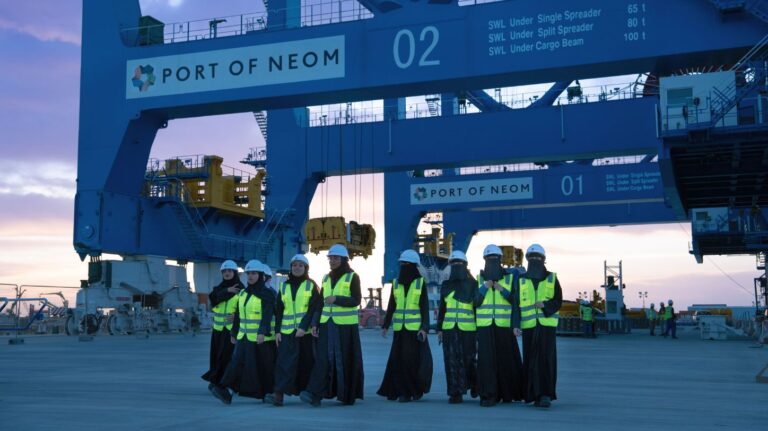The Port of NEOM has taken delivery of new fully automated remote-controlled ship-to-shore (STS) and electric rubber-tyred gantry (eRTG) cranes – the first of their kind in Saudi Arabia.
The move is set to support the port’s automation ambitions, with plans to eventually fully automate the Port of NEOM and position it as a new gateway on the Red Sea coast enhancing East-West trade.
As well as being fully automated, the cranes’ remote-control capability ‘allows for a future-ready workforce model, where operators can manage equipment from secure, ergonomic environments’, the port says.
Sean Kelly, managing director of the Port of NEOM, commented: “The arrival of our first automated cranes marks a tangible milestone as we lay the foundations for an advanced, future-ready port.
“We’re not only accelerating industrial growth in northwest Saudi Arabia, we’re setting a new benchmark for performance, efficiency, innovation and establishing a vital trade gateway for the Kingdom and the region beyond.”
FREE: Subscribe to Robotics and Automation’s bi-weekly MEA newsletter!
Alongside its investments in infrastructure and automation, the Port of NEOM has also committed to developing local talent, including, it says, ‘training Saudi women to take on high-tech roles’.
As part of this commitment, an initiative has been launched to ‘train the next generation of production specialists to gain the skills to become remote crane operators, thereby helping shape a more inclusive future for the logistics and industrial sectors’.
This programme is currently underway, with 10 participants from the nearby city of Tabuk enrolled in ‘an intensive two-year programme that blends technical instruction and hands-on training with dedicated mentorship’.
Hajjer Alatawi, one of the trainees taking part in the programme, said: “This experience has shown me that port logistics is far more complex than just moving cargo; it’s about teamwork, precision and responsibility.
“Seeing more Saudi women entering this space gives me hope for a future where industries are defined by skills, not gender.”
It is hoped that by empowering Saudi workers with hi-tech skills, the Port of NEOM can be ‘a catalyst for a sustainable, diverse and innovative ecosystem that enables regional economic resilience and advances the goals of Saudi Vision 2030’.









